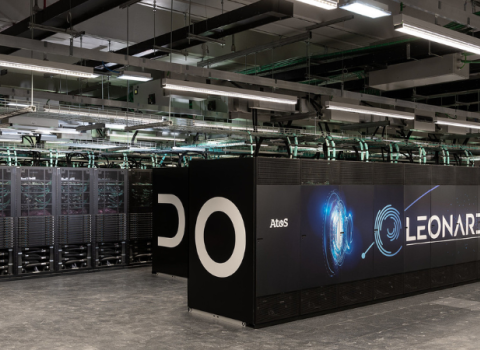Total has brought on line its new Pangea III supercomputer, multiplying the Group’s computing power by almost 5 to 31.7 petaflops1 (equivalent to 170,000 laptops combined) and tripling its storage capacity to 76 petabytes2 (equivalent to about 50 million HD movies).
Pangea III’s capacity adds to its predecessors (Pangea I and II) and is now ranked the number 1 most powerful supercomputer in the industry, and the 11th most powerful computer globally, public or private (TOP500 ranking).
“Pangea III’s additional computing power enhances Total’s operational excellence. It enables Total to reduce geological risks in exploration and development, accelerate project maturation and delivery, and increases the value of our assets through optimized field operations, with all this at a lower cost,” stated Arnaud Breuillac, President Total Exploration & Production.
Developed by IBM, the new high performance computer also enhances energy efficiency, dividing the power consumption per petaflop by 11 (1.5 MW for Pangea III versus 4.5 MW for Pangea I and II).
Pangea III has varied applications, particularly in three different fields:
- Exploration and development seismic imaging:
New algorithms can process huge amounts of data more accurately, at higher resolution and help to more reliably locate hydrocarbons below ground. This is especially useful in complex geologic environments with resources trapped under salt, such as in Brazil, the Gulf of Mexico, Angola and the Eastern Mediterranean. - Development and production models
Increased computing power allows us to use innovative reservoir simulation methods that, for example, integrate more efficiently a field’s production history, to generate more reliable predictive production models, much faster than we used to. - Asset valuation and selectivity
Pangea III also contributes to our business efficiency by enabling an early assessment of the value of exploration acreage and asset opportunities, thus enhancing selectivity in our new ventures.
Pangea III’s enhanced capabilities will also extend to new applications within the Group, such as molecular modeling to optimize refining processes or improve lubricants’ properties. In addition, it will enable our R&D teams to test complex new algorithms and facilitate the development of artificial intelligence solutions, an important growth area for Total as illustrated by our partnership with Google Cloud.
1 A petaflop is a quadrillion (thousand trillion) floating point operations ("flops") per second.
2 A petabyte is a million gigabytes of data
This communication was first published 18 June 2019 by Total





 A unique international forum for public research organisations and companies to connect their external engagement with strategic interests around their R&D system.
A unique international forum for public research organisations and companies to connect their external engagement with strategic interests around their R&D system.